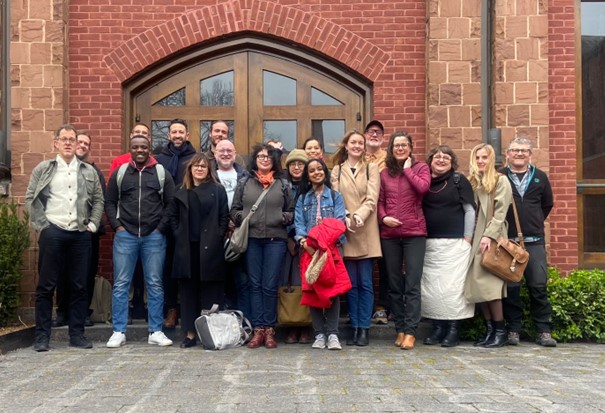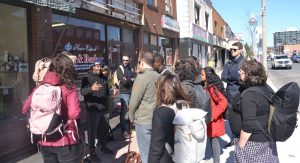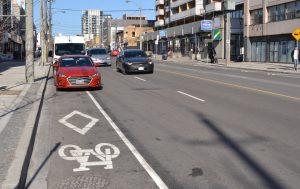
Global infrastructure scholars go local in Toronto | Thomas van Laake
In April 2024, students in the Manchester-Toronto International Doctoral Cluster visited Canada to take part in the Manchester-Melbourne-Toronto Enrichment Academy. Thomas Van Laake (University of Manchester) and Élyse Comeau (University of Toronto) discuss the many benefits – and potential pitfalls – of scholarly exchange in post-pandemic times.
As students who started PhD programmes amidst the challenges posed by the Covid-19 pandemic, we’ve grappled the complexities of academia’s international scope with the imperatives of sustainability and wellbeing. These experiences have afforded us personal and professional insight into the trade-offs associated with academic exchange. Moving through our doctoral programmes based at universities on both sides of the Manchester-Toronto International Doctoral Cluster, we’ve benefitted from funding and supervisory support to carry out comparative fieldwork (Thomas) and leverage academic support abroad (Élyse).
Nonetheless, we had long looked forward to an in-person meeting of the cluster – as well as of our respective supervisory teams. The Manchester-Melbourne-Toronto Enrichment Academy, held on 22nd and 23rd April 2024, provided an opportunity not only to nab a photo of our complete supervisory teams for the first time but also for productive interactions with doctoral students and faculty members from other universities.
The Enrichment Academy sought to bring together students working on PhDs through various international partnerships between the universities of Manchester, Toronto and Melbourne, along with many of their supervisors. Though the students’ research projects are distinct, they share an interest in the relations between infrastructures and the urban and engagement with the broader ‘infrastructural turn’ in the social sciences (Dodson, 2015: 87).
Over the course of two dynamic days filled with plenary discussions, question-and-answer sessions, enriching one-to-one meetings with faculty members, and dedicated support sessions aimed at enhancing students’ writing skills, we delved into a myriad of topics ranging from the immediately practical to the abstractly theoretical. Drawing on the attending professors’ experiences, students garnered invaluable insights on matters such as thesis defence strategies, tips for navigating the intricacies of academic publishing, as well as charting career trajectories. Informal and friendly exchanges with our fellow doctoral students from Manchester, Melbourne and Toronto were equally productive, not least in exchanging tips and extending support.

The group gathers on Elinton West to hear from community activists.
A highlight of the Enrichment Academy programme was a group excursion to Eglinton West, a key artery in Toronto’s inner suburbs that is undergoing significant reconfiguration through the ‘Eglinton Crosstown’ light rail transit project. The walking tour was led by Professor Matti Siemiatycki (University of Toronto), and we were later joined by Leighana Mais, founder of the Little Jamaica Community Coalition.
Accelerating gentrification and displacement affecting the well-established Afro-Caribbean community in the neighbourhood known as ‘Little Jamaica’

How to best improve cycling conditions has become a major issue of contention along Clinton West.
Though organised activism has successfully achieved official recognition of the social and cultural value of this community, many issues of contention remain, not least the plans to reconfigure street space by including cycling provisions. While this case had come up often in Thomas’ fieldwork in Toronto, the encounters with local advocates proved a useful counterpart to formal interviews with planners. Equally, many other event participants with less prior knowledge of this particular case were stimulated to reflect on their own experiences and research projects. In this way, Eglinton West presented a microcosm of the challenges facing cities around the world that seek to balance environmental sustainability, development pressures and housing needs, and transportation reconfiguration with social equity and citizen participation.
As the two days of the Enrichment Academy drew to a close, and we turned our energies back to our respective research projects, the value of academic exchange had been underlined once more. Though there are many downsides to transcontinental travel, these types of events are invaluable in cultivating a sense of community and allowing us to broaden our perspectives while deepening our connections with a global scholarly community.
As academic moves out of the long shadow of the (ongoing) Covid pandemic, it’s been both refreshing and rewarding to mix in a human touch and face-to-face discussion.

0 Comments